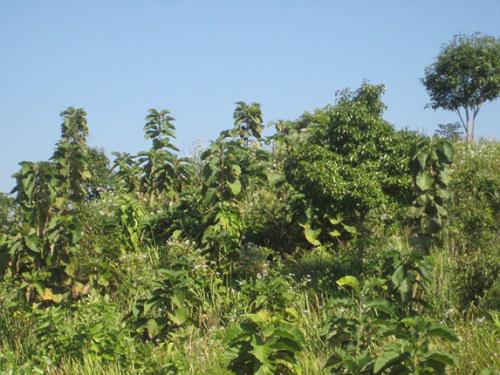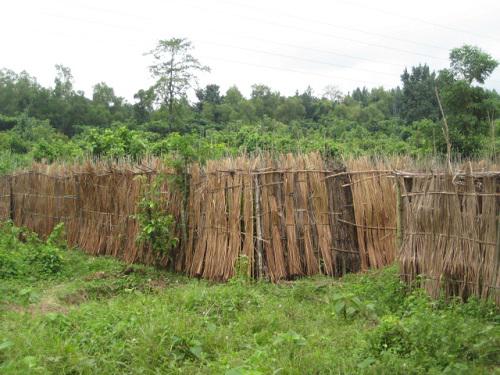A. Z. M. Manzoor Rashid
Other projects
22 Aug 2013
Participatory Training and Extension Approach to Promote Community Livelihood and Conservation through Agar (Aquilaria agallocha) and Rattan Based Cultivation
The basic aim of the project is to assess the viability of joint management through co-management approach that will enhance the process of conservation through ensuring sustainable livelihood of the forest dependent community.
The forests of Bangladesh containing diversified flora and fauna are closely intertwined with the country’s rich history and cultural tradition. This rich heritage, however, is declining at an alarming pace due to a host of socio-political causes, which are further aggravated by the conventional and custodial management approaches of the Forest Department of Bangladesh.

A section of teak regeneration showing its potential to cover the denuded forest.
Against this backdrop, building on the relative success of Social Forestry programmes pioneered in the 1980s, the Government of Bangladesh undertook a project initiative to introduce collaborative management (widely dubbed as Co-management) effort in the PAs of Bangladesh in reducing biodiversity loss while ensuring local livelihoods for the forest dependent ultra-poor community.

Betel leaf cultivation- a most detrimental practice within the Sanctuary
However, the ‘Co-management’ approach is still at a nascent stage in Bangladesh. Developing an appropriate mechanism for governance, institutional sustainability for PA is a difficult, yet urgently needed task to ensure locally relevant and sustainable management of the PAs. Community empowerment and participation combined with local traditional knowledge will add towards sustainable development (SD). Furthermore, such collaborative approach assisted by local, national and international policy support could be a better option to deal SD for poverty alleviation and environmental management of our vanishing natural resources. Pluralistic form of planning can play a substantive role in bridging the gap between environmental conservation and socio-economic wellbeing of the local people to endure SD. Understanding the socio-economic and political dynamics of resource exploitation, will give an insight to the concept and role of participation in formulating a sustainable co-management approach in the protected areas and as a result it will not only sustain livelihood of forest dependant but also create a win-win situation for all stakeholders viz human, animal etc., which ultimately will act towards biodiversity conservation.
The proposed study site is a Wildlife Sanctuary (known as Chunati Wildlife Sanctuary) and is a habitat and seasonal corridor of Asian Elephants. Due to rapid destruction of habitat and food source there has been increasing number incidents of conflicts between humans and animals in the area which is further aggravating the conservation initiatives creating uncertainty of livelihood in and around the wildlife sanctuary.
The present study will enable and aware local community about the importance of conservation and ecosystem management that will create a synergetic environment for humans and animals which is important for sustaining livelihood too.